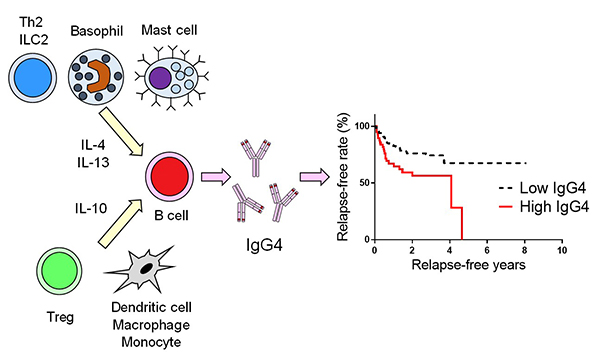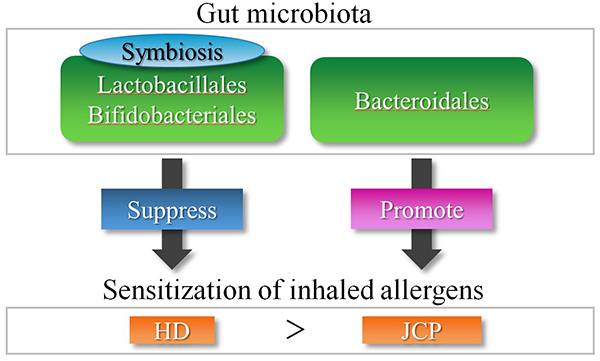Volume 69, Issue 3 (July 2020)
Editor's Choices
Editor’s comment: Type 2 chronic rhinosinusitis (CRS) is a refractory inflammatory disease of the upper airway; serum biomarkers reflecting the pathophysiology of CRS are desired. Oka et al. investigated the association between the serum levels of IgG4, a subclass of IgG that comprises approximately 5% of the total IgG, and clinicopathological factors in 336 CRS patients. They found that serum IgG4 levels were significantly higher in patients with moderate to severe eosinophilic CRS (ECRS) versus those with none to mild ECRS. Importantly, patients with elevated serum levels of either IgG4 or periostin exhibited a high postoperative recurrence as compared to patients having low serum levels of both IgG4 and periostin, suggesting that the combination of serum IgG4 and periostin would be a novel biomarker that could predict postoperative recurrence.
Editor’s comment: An imbalance in gut microbiota is implicated in several pathological conditions, including allergic diseases. Nomura et al. investigated the association between gut microbiota composition and sensitization to two inhaled antigens, Japanese cedar pollen (JCP) and house dust (HD1), in the Iwaki Health Promotion Project in 2016, which had 1109 participants. Next-generation sequencing of bacterial 16S rRNA in fecal samples revealed that the presence of bacteria belonging to the orders Lactobacillales, Bifidobacteriales, and Bacteroidales in the gut microbiota might affect sensitization to inhaled allergens.
Editor’s comment: Hereditary angioedema due to C1-inhibitor deficiency (C1-INH- HAE) is an autosomal dominant disease that manifests clinically with episodes of non-pruritic and nonpitting swelling of the deeper layers of the skin or mucosa. This disease is caused by mutations of the SERPING1 gene, which encodes for C1-INH. Currently, over 700 disease-causing variants have been reported. Vatsiou et al. developed a custom next-generation sequencing (NGS) platform that permits the analysis of full-length SERPING1 and found a novel mutation in intron 1 of this gene in patients with no detectable mutations in the coding region. Their findings indicate that advanced DNA sequencing methods are useful in cases of C1-INH-HAE where standard approaches fail to uncover genetic alterations.





